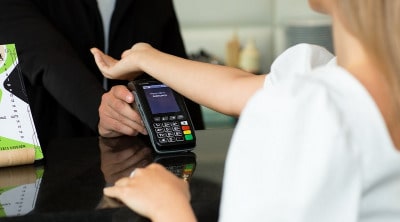This is totally normal. The BBC reporting on people getting implanted with microchips in their arms in order to buy things.
The article reads like an advert for the company Walletmor, which is offering to put the chips literally in people’s hands for just $300.
“The implant can be used to pay for a drink on the beach in Rio, a coffee in New York, a haircut in Paris – or at your local grocery store,” says founder and chief executive Wojtek Paprota.
“It can be used wherever contactless payments are accepted.”
Isn’t that a bit weird, invasive and a massive step down the road to a dystopian hellscape?
No, not at all!
Mr Paumen says he doesn’t have any of these worries.
“Chip implants contain the same kind of technology that people use on a daily basis,” he says, “From key fobs to unlock doors, public transit cards like the London Oyster card, or bank cards with contactless payment function.
“RFID chips are used in pets to identify them when they’re lost,” he says.
What about if this chip is packed full of personal information, isn’t that a potential minefield for loss of privacy, and manipulation, control and oppression of populations by exploitative governments or corporations?
NO! Don’t worry about it.
Steven Northam, senior lecturer in innovation and entrepreneurship at the University of Winchester, says that the concerns are unwarranted. In addition to his academic work he is the founder of UK firm BioTeq, which has been making implanted, contactless chips since 2017.
“This technology has been used in animals for years,” he argues. “They are very small, inert objects. There are no risks.”
As we reported in January, this technology is already being used to link people to their COVID vaccine status, with developers saying it’s going to become the way things are whether you like it or not.
Full article: BBC Lauds Implantable Microchip “Wallet”
